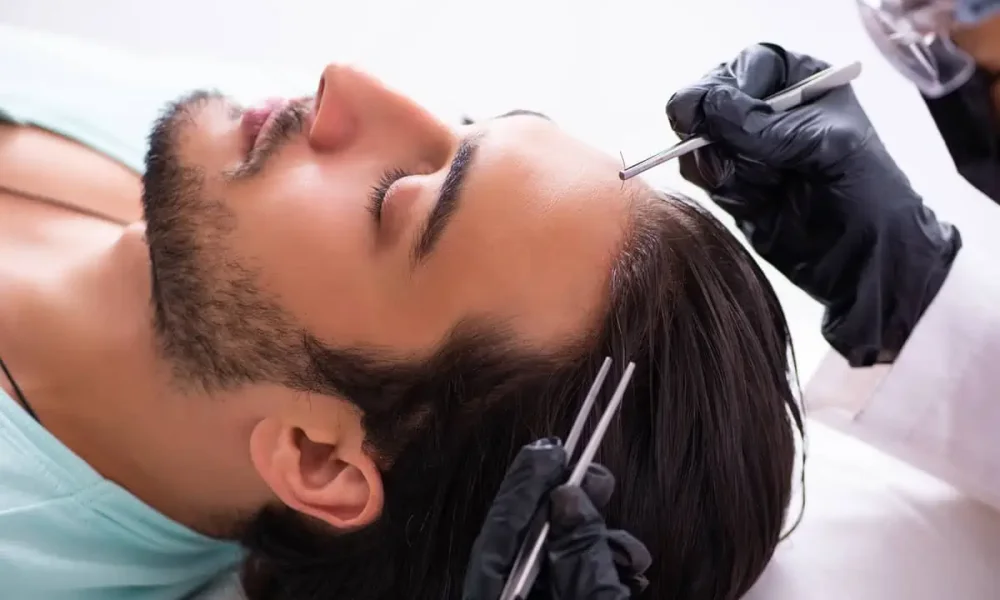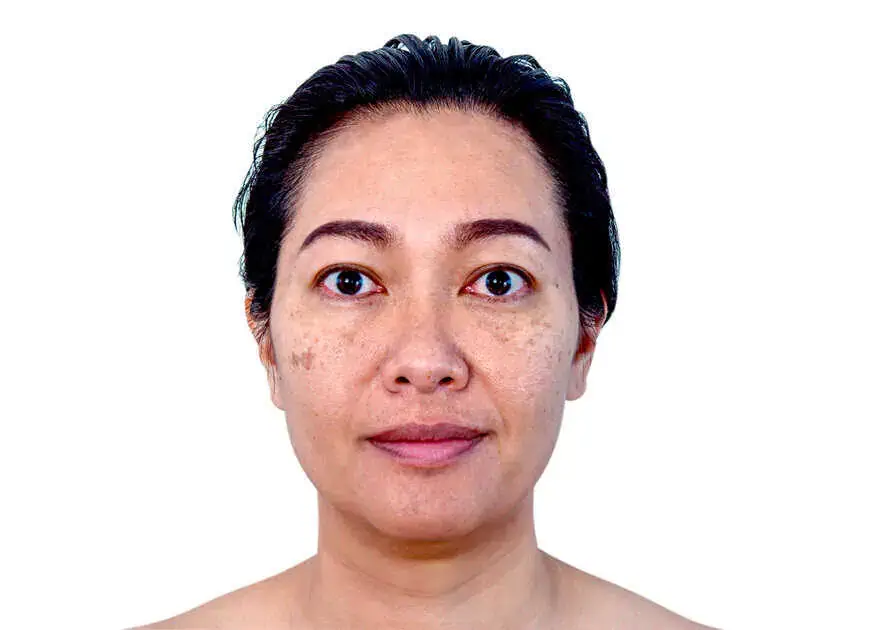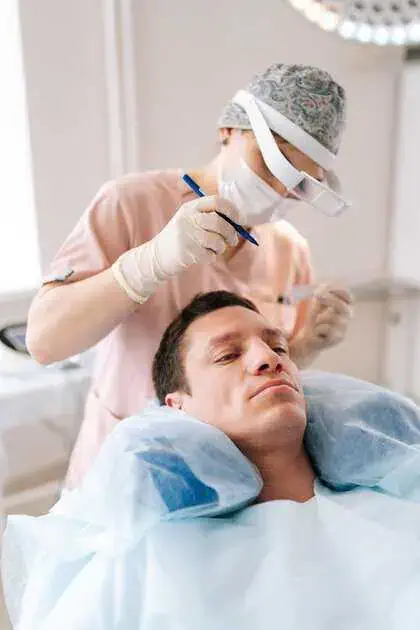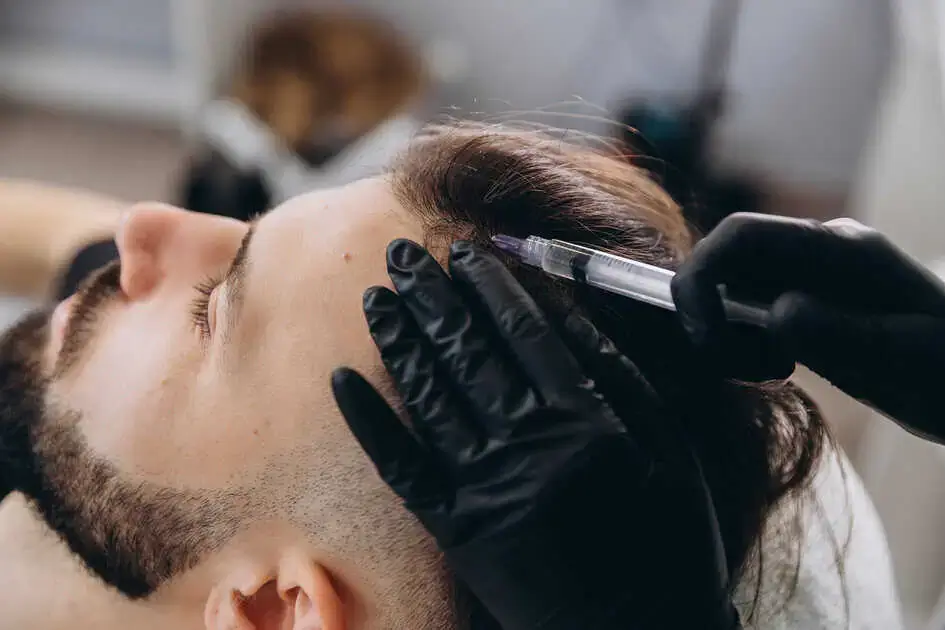Hair loss can seriously damage a person’s self-esteem in a society where physical appearance is essential, and self-confidence is frequently correlated with it. Fortunately, hair transplantation has become a practical treatment due to scientific developments in medicine. However, a pertinent question remains: at which age is it best to undergo this transformative procedure?
The Journey of Hair Loss
Before diving into the optimal age for hair transplantation, it’s crucial to understand the journey of hair loss. Hair loss doesn’t discriminate – it affects both men and women across various age groups. Many factors contribute to the thinning or loss of hair, from hormonal imbalances and genetic predispositions to lifestyle choices.
Understanding the Basics of Hair Transplantation
Hair transplantation is a scientific art form as much as a beauty treatment. Hair follicles from a donor area are harvested and transplanted to the balding or thinning areas using the two main procedures: follicular unit transplantation (FUT) and follicular unit extraction (FUE). The patient’s age is one of the criteria determining the procedure’s success.
The Role of Age in Hair Transplantation
- Early Adulthood (20s to 30s): The Pinnacle of Transplantation Success
Experts concur that the best age range for hair transplantation is between the late 20s and the early 30s. People usually have consistent hair loss patterns throughout this time, which helps surgeons anticipate the course of the loss and prepare for a successful transplant.
- Furthermore, the donor area – usually at the back of the head – tends to be healthier and more abundant in younger individuals. This ensures a sufficient supply of viable hair follicles for transplantation. The body’s healing capabilities are also at their peak, promoting faster recovery and optimal graft survival.
- Middle Age (40s to 50s): Navigating the Challenges
While hair transplantation is still a viable option in the middle-aged bracket, additional considerations exist. The rate of hair loss may slow down, but existing health conditions and medications may affect the procedure’s success. Potential candidates in this age group should undergo thorough medical evaluations to assess their health and candidacy for transplantation.
- In addition, the psychological component becomes essential. People in their middle years need to control their reasonable expectations regarding the procedure’s outcome and how much it can cure the ravages of aging. Through this technique, they can be transparently shown what can be accomplished by a trained surgeon.
- Beyond Fifty: Evaluating Individual Cases
While hair transplantation is not off the table for individuals over fifty, the success rate becomes more unpredictable. Factors such as overall health, skin elasticity, and the extent of existing hair loss play pivotal roles. Older individuals must have realistic expectations and understand that the procedure might not fully restore the hair density of their youth.
Beyond Age: Tailoring Solutions for Individual Cases
While age is a crucial factor in determining the success of hair transplantation, it is by no means the sole consideration. Each individual’s case is unique, and a personalized approach is key to achieving the best results.
- Health and Lifestyle Factors:
An individual’s overall health is paramount in assessing their suitability for a hair transplant. Regardless of age, those with underlying health issues may face higher risks during surgery and recovery. Adopting unhealthy lifestyle habits like smoking and binge drinking can also hinder the body’s capacity to recover itself.
- Pre-operative evaluations should delve into these aspects, ensuring candidates are physically prepared for the procedure. Adopting a healthy lifestyle before transplantation not only aids in recovery but also contributes to the longevity of the results.
- Stable Hair Loss Patterns:
Beyond age, the stability of hair loss patterns is a critical consideration. Individuals experiencing rapid or unpredictable hair loss may find it challenging to maintain the desired results over time. Stability in hair loss allows surgeons to plan the transplantation strategically, maximizing the use of donor follicles and ensuring a more predictable outcome.
- Expectation Management:
Regardless of age, managing expectations is integral to the success of hair transplantation. A skilled surgeon will openly discuss the achievable results with patients. While the procedure can significantly enhance one’s appearance and self-esteem, it is not a fountain of youth. Realistic expectations ensure that individuals are satisfied with the outcome and appreciate the positive changes achieved through transplantation.
- Technological Advancements:
The landscape of hair transplantation is continually evolving with technological advancements. New techniques and innovations, such as robotic-assisted procedures and improved graft harvesting methods, offer enhanced precision and results. These innovations can broaden the scope of candidates eligible for transplantation, even beyond traditional age considerations.
The Consultation: A Crucial Step in the Journey
Irrespective of age, the initial consultation with a qualified hair transplant specialist is the cornerstone of the entire process. During this phase, the surgeon will conduct a thorough assessment, considering not only the age of the patient but also their health, lifestyle, and individual hair loss characteristics.
A comprehensive discussion will cover the procedure’s potential risks, benefits, and realistic expectations. The surgeon will outline the proposed plan, detailing the number of grafts needed, the expected timeline, and post-operative care instructions.
The Psychological Impact: Beyond the Scalp
While the physical benefits of hair transplantation are evident, the psychological impact is equally noteworthy. The confidence gained from a successful procedure can positively influence various aspects of an individual’s life, from personal relationships to professional endeavors. The psychological benefits are not confined to a specific age bracket but are relevant to anyone seeking to improve their self-image.
- Social Confidence:
Hair loss can impact how individuals perceive themselves in social settings. A full head of hair can increase confidence and make social situations more enjoyable, whether in dating, work, or informal settings. This psychological boost transcends age, influencing individuals at different stages of life.
- P ofessional Success:
In the professional realm, confidence plays a crucial role in career success. Individuals who feel secure and optimistic about their appearance may be more assertive in professional interactions. This can increase opportunities, promotions, and a greater sense of accomplishment. The positive psychological impact of hair transplantation extends beyond age-related career concerns.
- Personal Relationships:
Confidence and self-assurance can significantly impact personal relationships. Feeling good about one’s appearance can contribute to healthier and more fulfilling connections in familial bonds, friendships, or romantic partnerships. The psychological benefits of hair transplantation contribute to a more positive and open approach to relationships, fostering a sense of well-being.
Conclusion
Dash Medical Spa understands that your journey to confidence is personal and unique. Our Hair Transplantation services go beyond restoring hair; they empower you to embrace your authentic self. Dash Medical Spa is more than a destination for hair transplantation; it’s where you rediscover confidence, celebrate diversity, and embrace individuality. Contact us now to schedule your consultation and embark on a journey to a more confident, empowered you!






